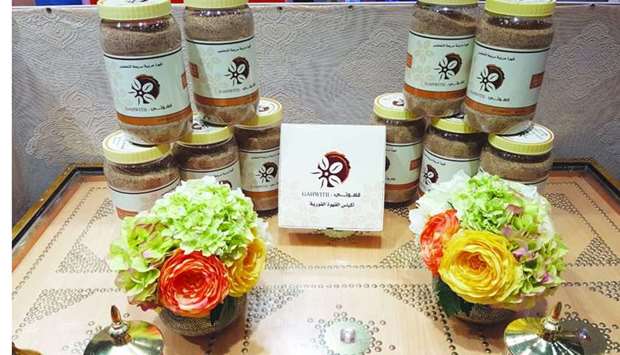"Besides establishing a name and reputation for our businesses, such challenges opened the door for further collaboration with various sectors and helped boost our confidence to consider expanding the operations," Gahwitii coffee owner Noora al-Dosari told Gulf Times.
“Customers appreciate our products better and recognise us (in person) quickly when they see our stall at exhibitions,” she said.
The female entrepreneur commended the efforts of institutions such as Qatar Chamber (QC) and Qatar Development Bank (QDB) for supporting their endeavour through various programmes and initiatives.
Apart from exhibitions, al-Dosari noted that QC and QDB also organise seminar workshops and trainings for budding entrepreneurs.
“For three years we have been participating in such programmes, which really empower lady entrepreneurs,” she stressed. “It helps us enhance our creativity to come up with better ideas.”
Seminars and workshops, as well as trainings, usually form part of many exhibitions in Doha, aimed at honing the skills of participants. These include the recently-held “Made At Home” event at the Doha Exhibition and Convention Centre.
Such fete had seen home-based entrepreneurs establishing rapport with potential and new customers, as well as those who patronise their products through online orders.
Al-Dosari pointed out that while social media such as Instagram and WhatsApp help introduce and promote their products, exhibitions serve as a platform to reinforce the credibility of their business and attract more customers.
Like other home-based entrepreneur in Qatar, she hopes to open her first shop in the near future, citing the increasing interest of some investors to partner with her.
Haawon Spices owner Mariam al-Jaber echoed al-Dosari’s view saying that female Qatari entrepreneurs are benefitting from the illegal blockade on Qatar imposed by the Saudi-led bloc.
“My business grew and I became very busy producing more to meet the growing demand for spices. Previously, it was not like this,” she said.
Al-Jaber stressed that she witnessed a surge in the number of customers looking for her products since June. She also plans to open a new store in Doha after a month.
Apart from Haawon, al-Jaber also owns another home-based business, which offers pasta, burgers, and other food items.
She expects the number of female entrepreneurs to substantially increase in the coming years due to the support given by the Qatar government and the increasing demand for locally-made products.
“Residents in the country are really patronising local products,” al-Jaber added.

Gahwitii offers home-made and easy-to-prepare Arabic coffee. PICTURE: Joey Aguilar
The illegal economic blockade on Qatar continues to augment and provide more opportunities for home-based entrepreneurs in the country to promote and market their products, it is learnt.

